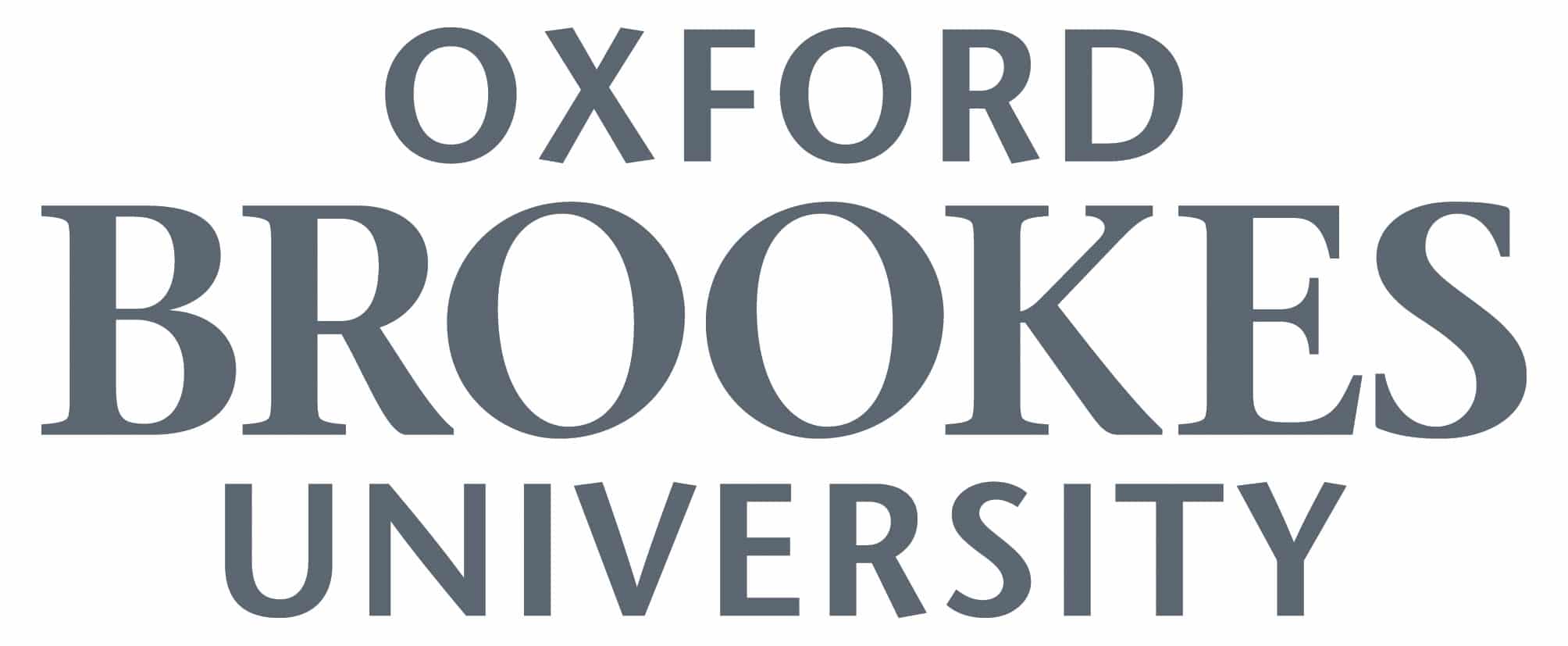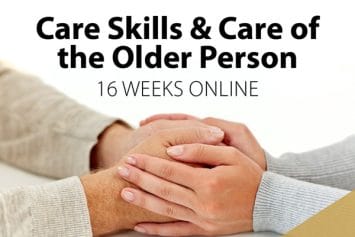BA (Hons) Health & Social Care – Online Degree
- Our newly updated online three year BA (Hons) Degree in Health & Social Care aims to facilitate knowledge of professional health and social care practice with consideration to both the theoretical knowledge and professional competencies which underpin the role of the health & social care practitioner.
- September 2024 Intake – Applications are now Open. Please register your interest.
- How is it delivered? Online Tutor led teaching & learning with flexible study from your own home.
- What Degree award do I receive? On successful completion of this 3-year degree you will receive an internationally recognised BA (Hons) Health & Social Care Degree awarded by Oxford Brookes University.
- Please note though that this degree is not an Applied Social Care Degree. It was not designed to train Social Care Workers for CORU registration.
- How long is the Degree? Complete Degree within 3 Years. 2 semesters per academic year.
- Credits Available: The full Degree programme consists of 18 modules totalling 360 credits or 180 ECTS Credits.
- What does it cost? The course fee each year is €3,895 and includes all documentation, lecturing, assessments, learner registration and award fees for all the 6 modules per year.
- There are also per year Easy Payment options available with our unrivaled Installment Plans. Please see “Fees” section for more information.
- To start your application or register your interest please click on the below “Express Your Interest” button and complete the form to speak with one of our Programme Managers.
-
Course Description
-
Course Structure
-
Accreditation
-
Delivery Format
-
Entry Requirements
-
Employment
-
Fees
Course Description
Why is this Health & Social Care Degree for me?
Professional Health and Social Care training aims to teach theories of practice and to develop both practice skills and a reflective capacity. The work of a Health & Social Care practitioner combines a multidisciplinary relationship based approach which encompasses purposeful planning and execution in the provision and delivery of care, protection, support and advocacy for individuals and groups in need of care, and those who may experience marginalisation and/or social disadvantage.
What will I study?
Our three year online BA (Hons) in Health & Social Care Degree programme aims to facilitate knowledge of professional health and social care practice with consideration to both the theoretical knowledge and professional competencies which underpin the role of the health & social care practitioner.
To do this the programme combines a consistent balance of theoretical knowledge through the delivery of online lectures, and the provision of practice skills gained in suitably appointed work placements to be completed over the duration of the programme. Successful completion of this programme will provide graduates with the academic knowledge, skills and competence to enhance their educational and/or employment opportunities within the field of health and social care.
Another key element of this programme is how it is centred around 4 key themes whereby learners will examine key areas of the Health & Social Care sector and the issues and challenges relating to Disabilities, Mental Health, Aging Care and other Vulnerable/Marginalized Groups in society. The design of the programme is such that it encompasses a flexible learning approach whereby learners can tailor the outcome of their degree to suit their preferred interests and/or area of work with consideration to each of these key areas.
How online learning works?
Our online BA (Hons) Health & Social Care degree programme will be delivered fully online using a combination of suitable online teaching and learning activities.
In many ways, learning online is like learning in a classroom. There are classes, readings, activities and discussions (individual and group) with your lecturer and your fellow classmates. The difference is that it is all done from your own home. With online classes you can join the live classes with your classmates or catch up on past or missed classes at your own pace.
Between classes, you will have readings, discussions and other activities that link with what you are learning in your online classes. Assignments have a set time they must be completed by but other than that, learners have great flexibility with when and where they learn.
Course Structure
Objectives:
This BA (Hons) in Health & Social Care Degree programme has been designed in accordance with the Standards of Proficiency for Health & Social Care Workers as set down by CORU – the regulatory body for Social Care Workers in Ireland.
Please note though that our BA (Hons) in Health and Social Care is not an Applied Social Care Degree. It was not designed to train Social Care Workers for CORU registration.
The programme aims to provide participants with in-depth key knowledge, skills and competencies based fully on current industry standards.
On successful completion of the programme, students will be able to demonstrate the following;
- A systematic understanding of the core areas of knowledge relevant to health and social care work, including their application to practice and service delivery.
- An understanding of the theory, paradigms, practice and policies that informs health and social care practice.
- Knowledge of, and the ability to work within the ethical guidelines laid down by professional codes of practice.
- Analyse how the learning experience can be improved through reflective practice i.e. planning, analysis and evaluation.
- An ability to show personal accountability and responsibility in application of their day to day work, while also recognising his/her own limitations.
- Practise in a compassionate, respectful way, maintaining dignity and wellbeing and communicating effectively.
- Work in partnership with other health and social care professionals and agencies, service users, carers and families ensuring that decisions about care are shared and communicated effectively.
- Deliver high quality care to service users in their field of practice.
Modules / Structure:
Over the duration of this three year online BA (Hons) in Health & Social Care Degree programme students will complete a range of modules which will link both theory and practice, and will be assessed in a range of contexts.
The full Degree programme consists of 18 modules totalling 360 credits. Where indicated, a single module has 15 credits and a double one has 30 credits. There are six modules (4 singles and 2 doubles) to be completed in each year over three years, equalling 120 credits in each academic year for a total credit value of 360.
ECTS Credits for this Degree will equate to 60 Credits per academic year or a total of 180 ECTS credits for the full Degree.
Exit awards:
- Certificate of Higher Education (120 Credits) (Year 1)
- Diploma of Higher Education (240 Credits) (Year 2)
- Ordinary Degree in Health and Social Care (300 Credits) (60 Credits from Year 3)
* A minimum of 1000 hours in placement will be completed over the duration of this three-year programme. Students will complete a minimum of 200 hours in each of the five Practice Placement blocks to be undertaken over the duration of this three year programme. Suitably appointed placements, which have been carefully selected and vetted by the college will be assigned to students accordingly.
Semester Timetable:
This three year online BA (Hons) in Health and Social Care Degree programme will commence again in September 2023 with students graduating in 2026 – details of graduation events will be confirmed nearer the time. See below for details of the intended three year timetable semester plan.
Please Note: this an indicative timetable and may be subject to change.
Accreditation
Our BA (Hons) in Health & Social Care Degree which is offered in partnership with Oxford Brookes University leads to a 360 UK Credit Degree which is equivalent to 180 ECTS credits on the National Framework of Qualifications which is recognised Nationally and Internationally in the area of Health & Social Care. As a registered student of both The Open College and Oxford Brookes University students will benefit from having access to a wide range of suitable online learning resources and open online library access for the duration of their programme.Delivery Format
How does our online learning work?
Entry Requirements
Entry Requirements / Prerequisites:
- A relevant vocational qualification – a Level 5 Major Award (ROI) or Level 3 (UK) and evidence of ability to study at academic Level 6 (ROI) or 4 (UK).
- Experience of paid or voluntary work with vulnerable people and/or other community work. This experience should be sufficient to enable the student to clearly demonstrate their commitment, motivation and understanding of social care work in practice. This understanding will be validated through the submission of an employer’s reference and/or interview where appropriate.
- Students must be available to undertake a practical supervised work placement (1000 hours minimum) across a range of social care settings. Students may normally be in employment and must be able to continue working in an appropriate setting whilst undertaking the Practice Placement modules of the Degree.
- English Language Requirement: Applicants must be competent in both written and spoken English. For any applicants whose first language is not English must also demonstrate their level of English is acceptable, by achieving a score in a recognised test such as: British Council IELTS: normally minimum level 6.5 overall with a minimum of 6.0 in the reading and writing components.
- Garda Vetting is required for all Health & Social Care placements and students can apply for this through the college who in turn apply to the National Vetting Bureau (NVB) which helps to assess the suitability of all applicants on this programme. It is important to note that participation in or completion of this programme may be affected by subsequent disclosure/discovery. Depending upon the outcome of the vetting process, the college reserves the following rights: to not register a student, to remove an existing registered student, to delay the student’s practice placement modules. In all circumstances, it is the student’s responsibility to proactively disclose any convictions/cases pending.
- Students undertaking this programme must have basic IT skills and access to the necessary equipment to enable them to undertake an online programme: computer, broadband, recording equipment necessary for some skills demonstration tasks, and where applicable any other specialised software/equipment.
- Occupational Health clearance certificate which certifies that you are fit to practice as a social care worker.
- Manual Handling and/or First Aid Training (must be in date).
- Students on placement may have to get certain vaccines to enable them to work in a variety of care settings: https://www.hse.ie/eng/health/immunisation/hcpinfo/guidelines/chapter4.pdf
Employment/h2>
Employment Opportunities:
This BA (Hons) in Health & Social Care Degree will equip you with knowledge and skills for employment in a variety of health & social care contexts, some examples below;
- Residential Care Services
- Disability Services
- Addiction Services
- Community Projects
- Probation and Welfare Agents
- Mental Health Services
- Marginalised and Vulnerable groups: Homelessness, Addiction, Travelling Community, Migrants
- Aging Care.
Progression:
Students who successfully complete this programme may use this award towards completing a suitable Higher Diploma and/or Masters Degree programme with another reputable third level institute/university.
Please note that The Open College and Oxford Brookes University have no direct affiliation or partnerships with any third level institute/university for the provision of access to further study programmes and so it is advisable that students check out the entry requirements of any intended further study options available to them.




